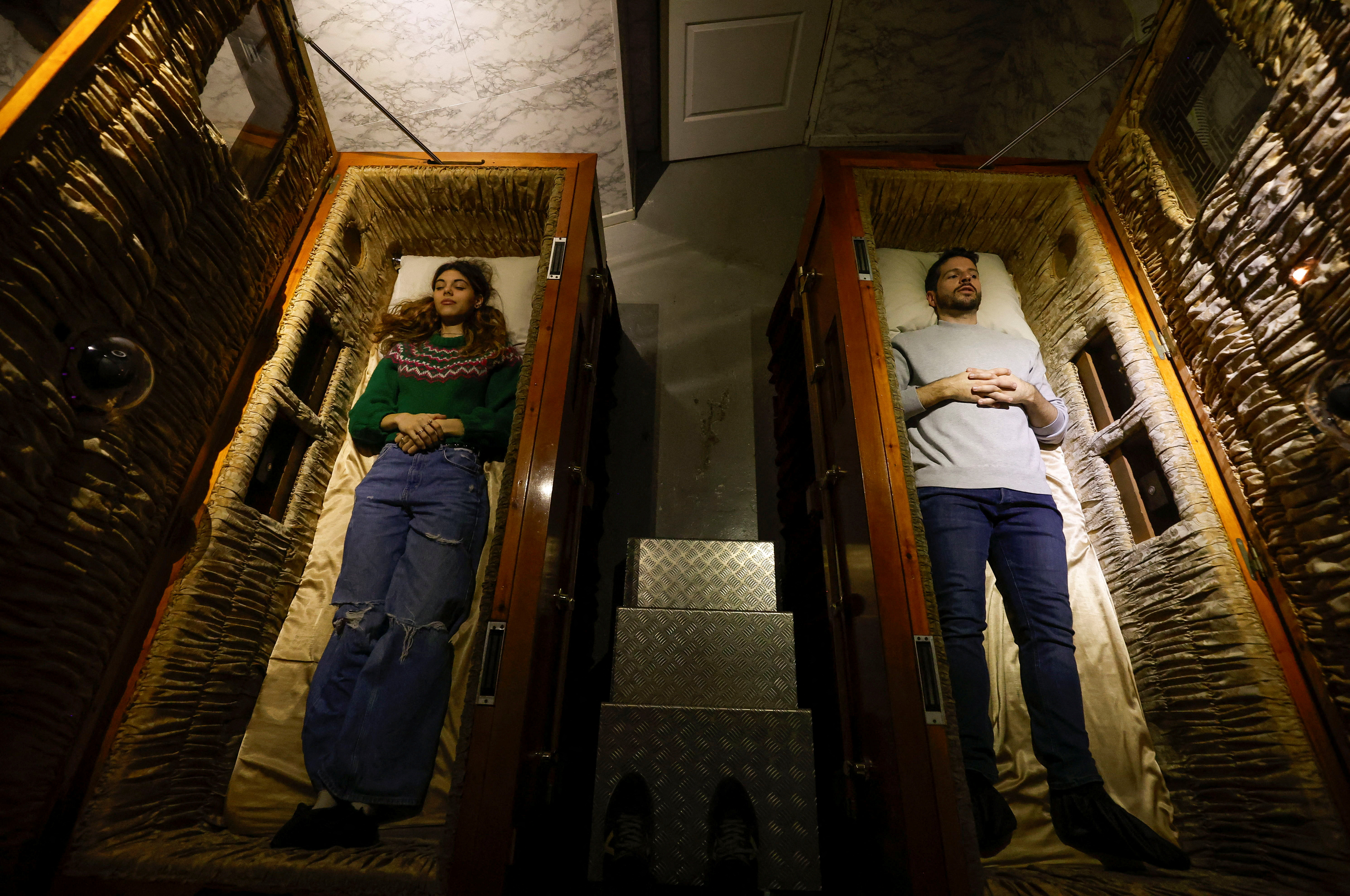Team Tasks at Minneapolis Escape Room-- Perfect for Pals and Family
Team Tasks at Minneapolis Escape Room-- Perfect for Pals and Family
Blog Article
Team Strategies: How to Collaborate Efficiently in a Retreat Area
Teams should proactively listen to each member's understandings, appoint duties that align with specific toughness, and preserve normal check-ins to guarantee focus and stop redundancy. By cultivating an environment that values communication and adaptability, teams can substantially enhance their efficiency and success prices.
Establish Clear Interaction

To help with clear interaction, it is important to mark a main point of get in touch with for information dissemination. Quick, focused updates from each team participant can maintain the group informed without overwhelming them with details.

Assign Duties Tactically
While clear communication sets the structure for effective teamwork, appointing roles purposefully makes sure that each staff member's strengths are made use of efficiently. In an escape space scenario, the time-sensitive and complicated nature of challenges requires an efficient strategy to task delegation. By recognizing and leveraging individual proficiencies, teams can enhance their analytic abilities and boost general performance.
Someone with an eager eye for detail might excel in locating surprise things, while a logical thinker might be much better fit to addressing problems. This role frequently requires strong business and social abilities.
2nd, ensure that functions are flexible and adaptable. As new obstacles arise, the group must be able to pivot, reallocating tasks as called for. This flexibility helps preserve momentum and avoids traffic jams that can take place because of stiff function jobs.
Inevitably, a tactical approach to function task not just optimizes the toughness of each employee however likewise promotes a natural environment, driving the group in the direction of a successful retreat.
Utilize Diverse Skills
Recognizing and utilizing the diverse skills within your group can considerably boost your performance in an escape area. Each staff member brings distinct toughness to the table, and properly leveraging these abilities can expedite analytic and boost total performance. For example, a staff member with strong analytical abilities might stand out at deciphering complicated codes or patterns, while an additional with eager empirical abilities may quickly spot surprise clues that may Related Site forget.
Motivate group members to articulate their understandings and ideas immediately, ensuring that all prospective remedies are thought about. In addition, appointing tasks that line up with each participant's staminas can prevent bottlenecks and make certain that progress is continuous.
In addition, diversity in abilities frequently translates to variety in thinking designs, which is important in a getaway room setting. While some challenges might need rational thinking and accuracy, others might take advantage of creative and lateral reasoning. By acknowledging and leveraging this variety, groups can deal with a wider range of obstacles better, consequently increasing their possibilities of a successful retreat.
Manage Time Efficiently

First, assign preliminary mins for a quick survey of the space. Recognize noticeable puzzles and divide tasks based on group participants' strengths, guaranteeing that no one is still. Establish interior time checkpoints to examine development occasionally; for example, aim to have half the challenges fixed by the mid-point of the video game. This technique can help maintain the team concentrated and prevent time from sliding away undetected.
In addition, stay clear of one-track mind. If a challenge is taking too long, turn group participants or proceed to another page obstacle, returning later on with fresh perspectives. Communication is critical-- maintain everybody upgraded on addressed challenges and staying tasks to avoid redundant efforts.
Finally, make use of any kind of hints or hints moderately yet purposefully - best escape room. Knowing when to request aid can save beneficial time. By adhering to these time monitoring principles, teams can dramatically enhance their chances of an effective and enjoyable escape about his area experience
Debrief and Reflect
Reflection is an essential element of team advancement and improvement in the context of getaway spaces. When the difficulty is completed, whether successfully or not, it is vital for the team to involve in a structured debriefing session. This process permits staff member to assess their efficiency, identify staminas, and identify areas for enhancement.
Start the debrief by reviewing what worked out. Highlight certain instances of efficient communication, problem-solving, and collaboration. Recognizing these favorable actions strengthens them and encourages their rep in future obstacles.
Review moments of complication, miscommunication, or inadequate methods. Encourage an open and positive discussion where team members can share their viewpoints without fear of objection.
Conclusion
In verdict, effective cooperation in an escape room is predicated upon clear interaction, critical duty assignments, the reliable utilization of varied skills, and proficient time monitoring. By producing a natural and adaptive group environment, the likelihood of successfully addressing challenges and attaining the purpose of leaving the room is substantially improved.
Report this page